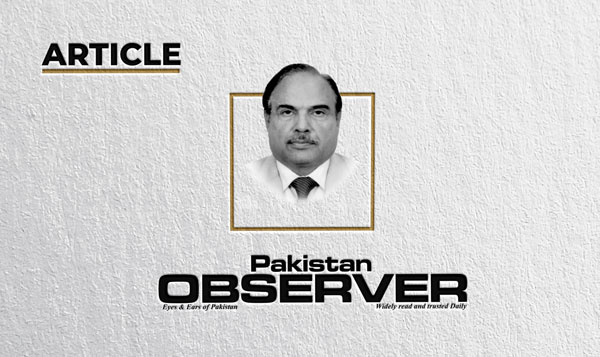If Provincial Assemblies dissolved?
CHAIRMAN of the Pakistan Tehreek-e-Insaf Imran Khan formally decided to dissolve the Punjab and KP Assemblies as well as tender resignations from the Sindh and Balochistan Assemblies.
On 26 November, he announced in his Rawalpindi rally that PTI would dissociates itself from the corrupt political system.
Any decision by PTI members of provincial assemblies to resign en masse from all four provincial assemblies will oblige the Election Commission of Pakistan to hold bye-elections on all vacant seats within 60 days as per Article 224.
The Article 224 of the Constitution is very clear as it reads, “When, except by dissolution of the National Assembly or a Provincial Assembly, a seat in any such Assembly has become vacant not later than one hundred and twenty days before the term of that Assembly is due to expire, an election to fill the seat shall be held within sixty days from the occurrence of the vacancy”.
The seat will fall vacant only after the resignation has been accepted by the speaker. An estimated Rs 25 billion would be spent on the bye-elections in case PTI members of provincial assemblies resign from the provincial assemblies.
If the Punjab and KP assemblies are dissolved, in that case, the two assemblies would be elected for a five years term and the elections will be held within the 90 days of the dissolution.
But on the sideline, the fact is that the order of Imran Khan is still at the formulative stage and there are many stages.
It has to be seen if the entire PTI parliamentary party agrees to their chairman prop or not. As per inner story, majority of parliamentary party members don’t agree with the point of view of their chairman because they are enjoying full benefits and even Imran Khan is enjoying all facilities from both provinces.
On the other hand if both provincial assemblies are dissolved under Article 112, then caretaker government has to be formed under Article 105 of the Constitution.
Imran Khan apparently knows that the PTI’s months long campaign could not achieve any of its objectives.
The dissolution of the assemblies in the two most powerful provinces and the possible pulling out of PTI members from the other provincial assemblies could certainly deepen the political crisis, making it harder for the fractious ruling coalition to survive.
The option of governor rule may not be effective in this situation. Punjab comprises half of the country’s population, and developments in the province influence how the rest of Pakistan fares politically and financially.
With the bureaucracy under a cloud of uncertainty and senior officers apprehensive about their fate, provincial decision making has been relegated to the back burner.
It is not surprising to see governance suffer so much in recent months, despite the formation of a relatively stable government following high political drama in the provincial assembly during the election of the Chief Minister.
It remains uncertain if Mr Imran can force early elections by quitting the legislature and dissolving the Punjab and KP assemblies.
What is certain though is that the move will aggregate the political and administrative chaos in the country in general and Punjab in particular, with governance suffering hugely.
In a democracy, the place of a popular party like the PTI is in parliament. Whether or not elections are called early, the PTI should consider staying in the system and using it as the platform for its political demands.
With governments in two provinces, it will have plenty of opportunities to serve its voters by improving governance to boost its electoral chances.
Imran Khan’s move to dissolve the Provincial Assemblies may have pushed the federal government into a corner but it has intensified the political confrontation and deepened the chaos.
The Election Commission of Pakistan has sought Rs 48 billion from the federal government in order to make preparations for the next year’s general elections.
However, the Ministry of Finance is apparently in a difficult position to earmark a major supplementary grant at least during the current quarter of the fiscal year in view of engagements with the International Monetary Fund as it is grappling with expenditure over turns including during the first quarter.
The Election Commission of Pakistan told the Economic Coordination Committee last month as per the constitutional obligation, it is taking all steps to conduct the general elections and has already approached the Finance Division for allocation of funds.
It sought a rationalised budget requirement of Rs.47 billion to make preparations for the elections.
—The writer is former Secretary Election Commission of Pakistan and currently Chairman National Democratic Foundation.










